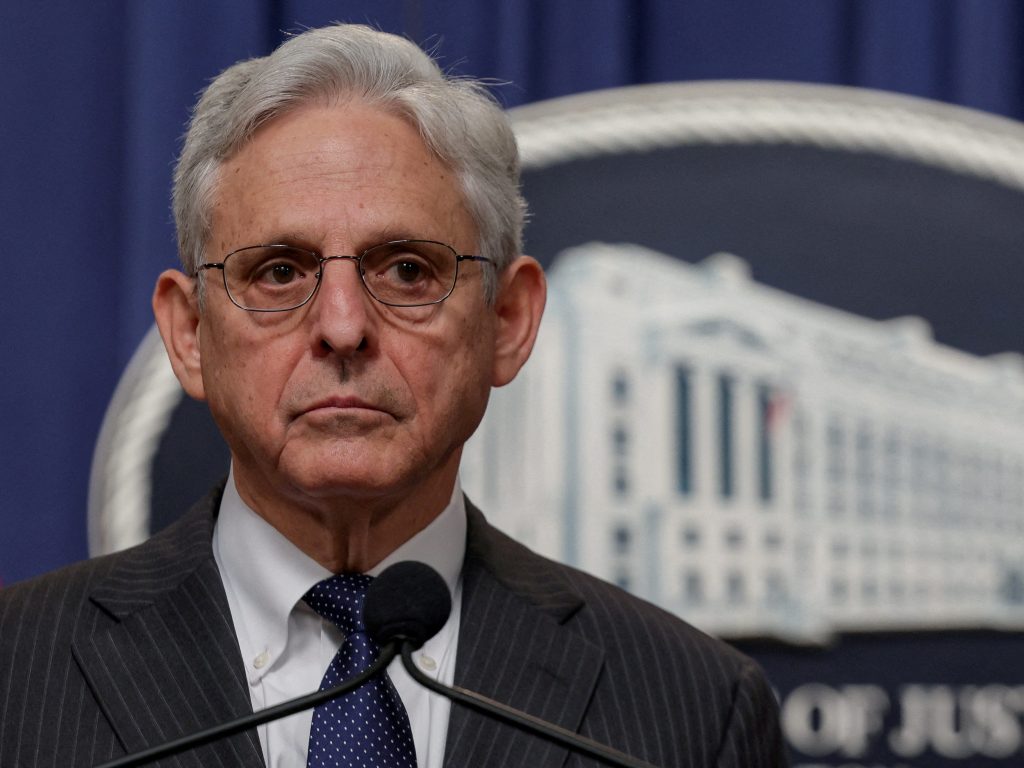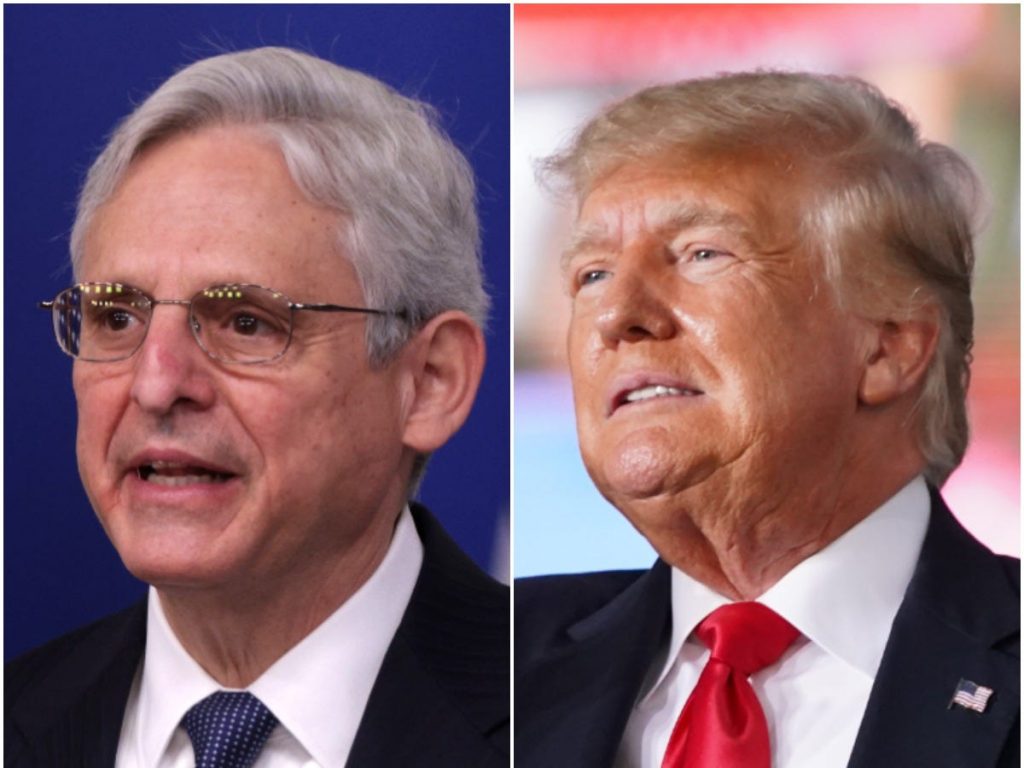- Longstanding norms and legal restrictions have prevented DOJ from addressing the Mar-a-Lago search.
- Donald Trump could release the search warrant and other records, but he hasn't done so — yet.
- Republicans, even some critical of Trump, have demanded more transparency.
In the feverish speculation around the FBI's search of Mar-a-Lago, Republican leaders have called on the Justice Department to release details about the "unprecedented" raid of former President Donald Trump's estate in South Florida.
But they may have to wait a while. Amid the clamoring for transparency, the Justice Department and FBI have responded with a familiar refrain in ongoing investigations: no comment.
Indeed, as even some of Trump's Republican critics have demanded a deeper explanation, Attorney General Merrick Garland has remained silent. For the Justice Department, it is a matter of longstanding policy and staying true to norms while navigating the currents of a politically sensitive investigation into a former president, legal experts told Insider.
"One of the cardinal rules at the Justice Department is that it does not discuss ongoing investigations, and certainly not with Congress, because criminal investigations should be free from political interference. And that's what Congress is all about," said Ronald Weich, dean of the University of Baltimore School of Law, who served as the Justice Department's chief liaison to Congress during the Obama administration.
"In high profile matters," he added, "there are sometimes exceptions, and the department will sometimes arrange briefings for members of Congress to explain, in general terms, the nature of an investigation. But it's a very delicate dance to decide how much can be provided, and the department will be institutionally reluctant to provide information about the ongoing investigation."
Meanwhile, Trump himself has allowed questions to hang over the raid.
In the normal course of a search, the FBI would have offered a copy of the warrant to a Trump representative at Mar-a-Lago and then provided an inventory of items taken from the property. Trump's lawyer, Christina Bobb, confirmed in a recent interview that she reviewed the search warrant. But in a situation reminiscent of Trump balking for years to release his "great" tax returns, the former president has not publicly released any records related to the raid.
Trump and his allies have instead seized on the Justice Department's silence.
On the day of the search, Trump called it a politically-motivated "weaponization of the Justice System" and alleged prosecutorial misconduct. The former president more recently suggested that federal agents might have been "planting" evidence during the search.
His Republican allies have also jumped to his defense. Sen. Rick Scott, a Florida Republican and former governor of the state, said the federal government had gone the way of the Gestapo — the notorious secret police in Nazi Germany.
Senate Minority Leader Mitch McConnell stayed silent through the immediate aftermath of the raid before giving a more tempered response in which the Kentucky Republican called for a "thorough and immediate explanation."
Maryland Gov. Larry Hogan, a Republican critic of Trump, said the "unprecedented circumstances" of the Mar-a-Lago search "require unprecedented transparency and accountability from our government institutions."
"The American people deserve to know all the facts as soon as possible, and I call on the Biden administration to release — at a minimum — the documents authorizing the FBI search," Hogan said in a prepared statement.

A push to unseal
Garland has stressed repeatedly in public statements that the Justice Department speaks within the boundaries of court filings. Customarily in a criminal case, a search warrant and inventory of items seized would only become public after the Justice Department files charges in court — an event that may never come to pass with respect to Trump and his handling of classified documents.
But in a federal court in South Florida, a conservative watchdog group, and separately, news organizations, have opened a new avenue for potentially accessing records about the search of Mar-a-Lago. On Wednesday, Judicial Watch and news organizations including the New York Times pushed to unseal documents related to the search warrant.
"Here, Judicial Watch is investigating the potential politicization of the Federal Bureau of Investigation and the US Department of Justice and whether the FBI and the Justice Department are abusing their law enforcement powers to harass a likely future political opponent of President Biden," the conservative group said in court papers.
In another court filing, lawyers for the New York Times said, "Mr. Trump has publicly and vociferously challenged the Justice Department's and FBI's actions."
"This matter is one of utmost public interest, involving the actions of current and former government officials," the Times' lawyers added. "President Trump decried the search as an 'assault that could only take place in broken, Third-World Countries,' asserted agents 'even broke into my safe,' and otherwise publicly challenged the validity of the search and governmental action."
Magistrate Judge Bruce E. Reinhart, who approved the search warrant, ordered the Justice Department to respond by August 15.
The Justice Department's policy against speaking publicly about investigations — or even confirming or denying the existence of one — is rooted in a number of interests.
Among them is a desire to "protect the person under investigation" from the taint of a criminal inquiry that might never result in charges, said Barb McQuade, a University of Michigan law professor and former US attorney in Detroit.
"Typically it remains sealed because there are accusations in that document that has only mustered the probable cause standard. No one's been charged yet," she said. "Because there's a sealing order in place, DOJ can't talk about it until it's unsealed."
McQuade added: "It's an interesting situation we have now where people are calling upon Merrick Garland to announce what this was all about when these rules of secrecy are designed, in part, to protect Donald Trump and others in his situation. Trump himself, presumably, has a copy of the warrant and the inventory. And he could wave it around and say, 'Here's what they were looking for, and here's what they took.' But it seems that he would do that if it suited his purposes, and he's not doing that."

